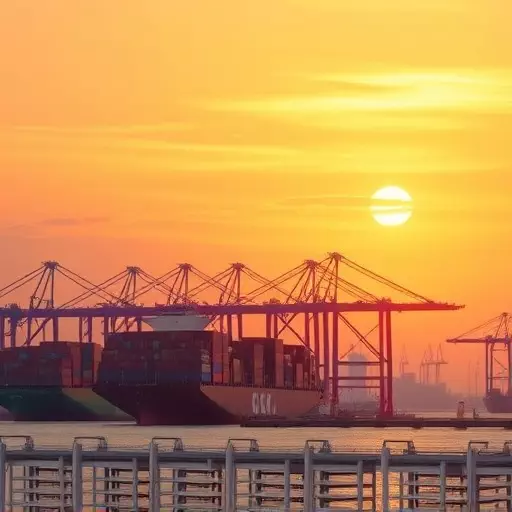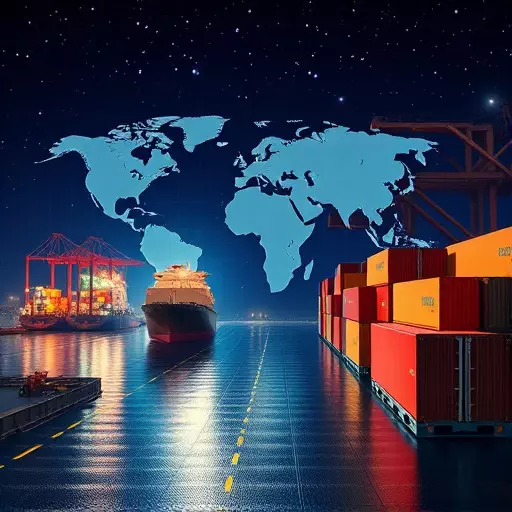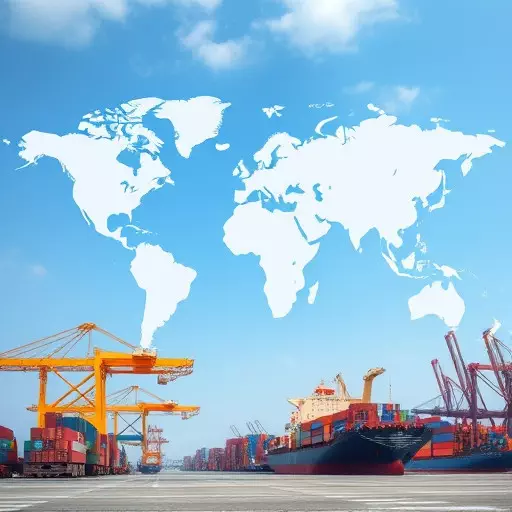The International Maritime Organization (IMO) sets global shipping standards for safety, security, and environmental protection, crucial for businesses in Holland, Ohio involved in international shipping. Key standards include the International Ship and Port Facility Security Code (ISPS) for maritime security and ISPM 15 for safe wooden packaging to prevent pest spread. Staying updated on IMO regulations is vital to avoid legal issues, delays, and disruptions. Compliance offers strategic advantages like enhanced reputation and reduced complications, with businesses investing in digital solutions for optimal navigation and resource management.
“The international maritime industry is governed by stringent regulations, ensuring safe and sustainable global shipping practices. This article delves into the intricate world of IMO (International Maritime Organization) regulations, a cornerstone for international shipping standards compliance. From understanding the global impact of these standards to exploring crucial protocols like ISPM-15, we uncover the significance of Holland, Ohio, as a hub for training and its role in fostering industry growth. Additionally, we examine challenges, benefits, and future trends in IMO compliance, providing insights into navigating the ever-evolving landscape of international shipping.”
- Understanding IMO Regulations for International Shipping
- Global Shipping Standards and Their Impact on Industry
- The Role of ISPM-15 in Ensuring Safe Cargo Transport
- Holland, Ohio: A Center for Compliance Training
- Challenges and Benefits of Meeting Shipping Regulations
- Future Trends in International Shipping Compliance
Understanding IMO Regulations for International Shipping

The International Maritime Organization (IMO) sets and enforces global shipping regulations to ensure safety, security, and environmental protection for international shipping. For businesses involved in international shipping standards compliance, such as those operating in Holland, Ohio, understanding and adhering to these regulations is non-negotiable. IMO’s regulations cover a wide range of aspects, from vessel construction and operation to handling hazardous materials and preventing pollution. One crucial standard is the International Ship and Port Facility Security Code (ISPS), which outlines security measures for ports and ships, enhancing global maritime security.
Another significant regulation is ISPM 15, specifically tailored for the safe transport of wooden packaging material to prevent the spread of harmful pests. For international shippers, ensuring compliance with ISPM 15 is essential to avoid delays at ports worldwide. Navigating these global shipping regulations requires continuous updates and adaptation as new standards are introduced. Businesses in Holland, Ohio, must stay informed about changes in IMO regulations to maintain smooth operations and avoid legal and logistical nightmares.
Global Shipping Standards and Their Impact on Industry

The global shipping industry is governed by a set of international standards and regulations aimed at ensuring safety, security, and environmental protection. These standards, collectively known as Global Shipping Regulations, play a pivotal role in shaping the way vessels operate and are managed worldwide. Compliance with these regulations is not just a legal requirement but also a cornerstone for maintaining a robust and efficient shipping industry. For instance, ISPM 15 (International Standard for Plant Health Measures) sets protocols for preventing the introduction and spread of pests and diseases through international plant and animal products trade. Ensuring compliance with such standards involves rigorous procedures and documentation, impacting operations from port to port, including in regions like Holland, Ohio.
The impact of these global shipping standards extends far beyond individual companies, influencing market dynamics and facilitating international trade. By creating a level playing field, they promote fair competition among shipping lines and encourage the adoption of best practices. For companies operating within these guidelines, adherence to international shipping standards compliance in Holland, Ohio, or any other location, ensures not only legal but also operational efficiency. This, in turn, translates to cost savings, improved customer satisfaction, and enhanced environmental stewardship, all of which are vital for maintaining a competitive edge in the global shipping arena.
The Role of ISPM-15 in Ensuring Safe Cargo Transport

The International Standards for Plant Health (ISPM-15) play a pivotal role in ensuring safe cargo transport within international shipping standards compliance, particularly in high-risk sectors like Holland, Ohio’s global shipping industry. This regulatory framework is designed to mitigate the potential introduction of pests and plant diseases through various modes of transportation, including sea freight. By implementing strict protocols for treatment, packaging, and documentation, ISPM-15 ensures that cargo arriving from abroad does not pose a threat to local agriculture and ecosystems.
Compliance with ISPM-15 is crucial for shippers aiming to adhere to global shipping regulations. This involves proper certification of treated wooden packaging material, detailed record-keeping, and the application of approved pest control treatments. These measures help prevent the spread of harmful organisms, ensuring the safety of both international shipments and domestic agriculture. For Holland, Ohio’s port facilities and logistics companies, maintaining ISPM-15 compliance is essential to facilitate seamless global trade while safeguarding the region’s agricultural integrity.
Holland, Ohio: A Center for Compliance Training

Holland, Ohio, has established itself as a prominent hub for shipping and logistics due to its strategic location and robust infrastructure. This Midwestern city serves as a vital gateway for international shipping standards compliance, particularly focusing on the stringent global shipping regulations known as ISPM 15 (International Standard for Plant Health – Measure 15). With a strong emphasis on education and training, Holland offers specialized compliance training programs tailored to meet the diverse needs of the shipping industry.
The city’s leading organizations and experts in maritime law collaborate to deliver comprehensive workshops and seminars that cover various aspects of international shipping standards. These initiatives ensure that shipping professionals in Holland, Ohio, are well-equipped to navigate complex global regulations, promoting safe and sustainable practices throughout the supply chain. By fostering a culture of compliance, Holland plays a significant role in maintaining environmental integrity while facilitating efficient international shipping.
Challenges and Benefits of Meeting Shipping Regulations

Meeting global shipping regulations, such as ISPM 15 compliance, presents both challenges and significant benefits for the international shipping industry, including those operating in Holland, Ohio. One of the primary obstacles lies in the complexity and constant evolution of these standards, which demand a deep understanding and staying current with updates. Companies must invest in training, equipment upgrades, and rigorous internal processes to ensure adherence to each regulation, often requiring substantial time and financial resources.
However, complying with international shipping standards is not just about avoiding penalties; it offers strategic advantages. By embracing these regulations, shippers enhance their reputation as responsible and reliable partners, fostering trust among clients and reducing potential delays or complications. Furthermore, ISPM 15 compliance ensures the safety of goods and contributes to a more sustainable shipping practice, aligning with growing consumer expectations for eco-friendly and ethical business operations.
Future Trends in International Shipping Compliance

The future of international shipping compliance looks set to be shaped by a combination of evolving global regulations and technological advancements. As environmental concerns continue to grow, there’s an increasing focus on reducing the carbon footprint of shipping operations. This trend is evident in the ongoing development and implementation of stricter International Shipping Standards (ISPS), such as ISPM 15, which sets out guidelines for minimizing pollution from ships’ operations and structures.
In regions like Holland, Ohio, where maritime activity is robust, staying ahead of these global shipping regulations is crucial for maintaining competitive edge. Shipowners and managers are increasingly adopting digital solutions to ensure compliance, including advanced tracking systems, real-time data analytics, and automated reporting tools. These innovations not only facilitate adherence to ISPS but also enable more efficient navigation, improved safety protocols, and better resource management in the global shipping landscape.


